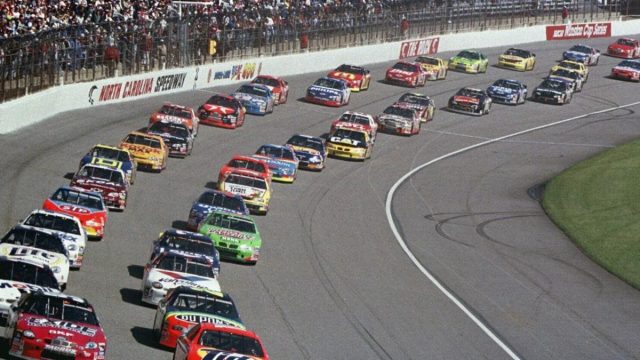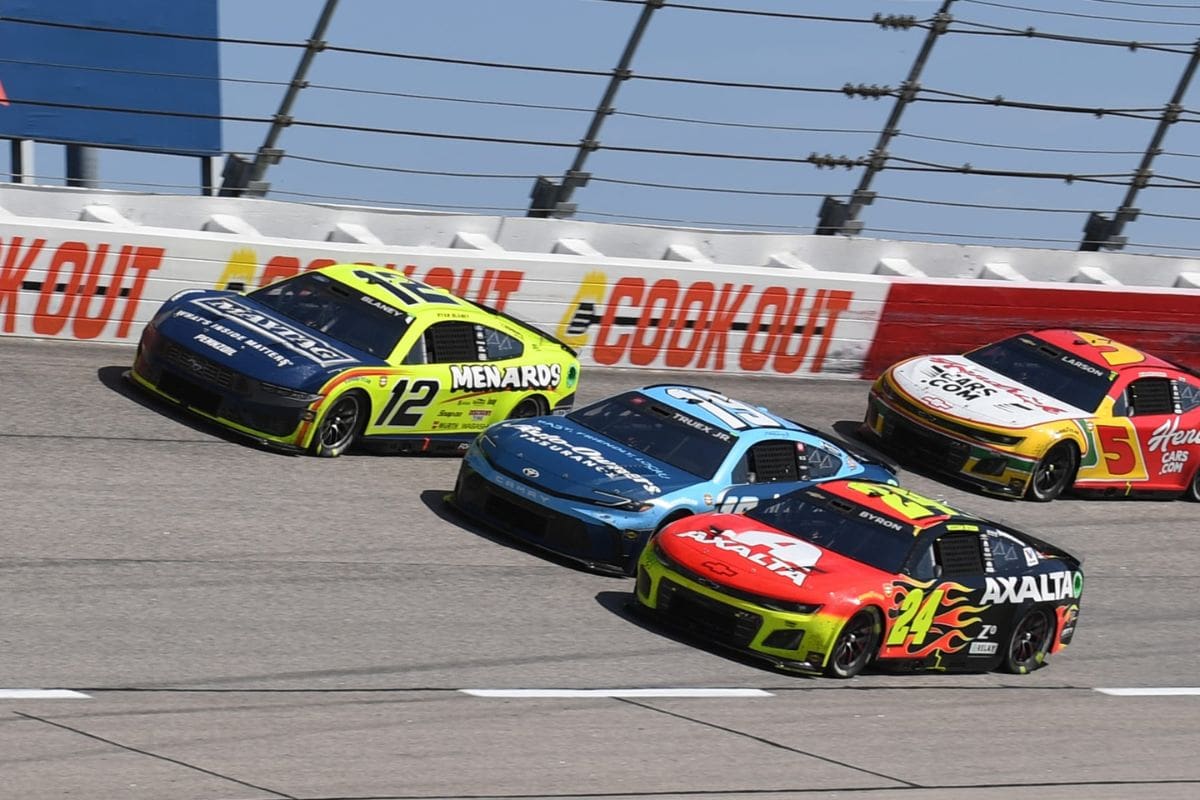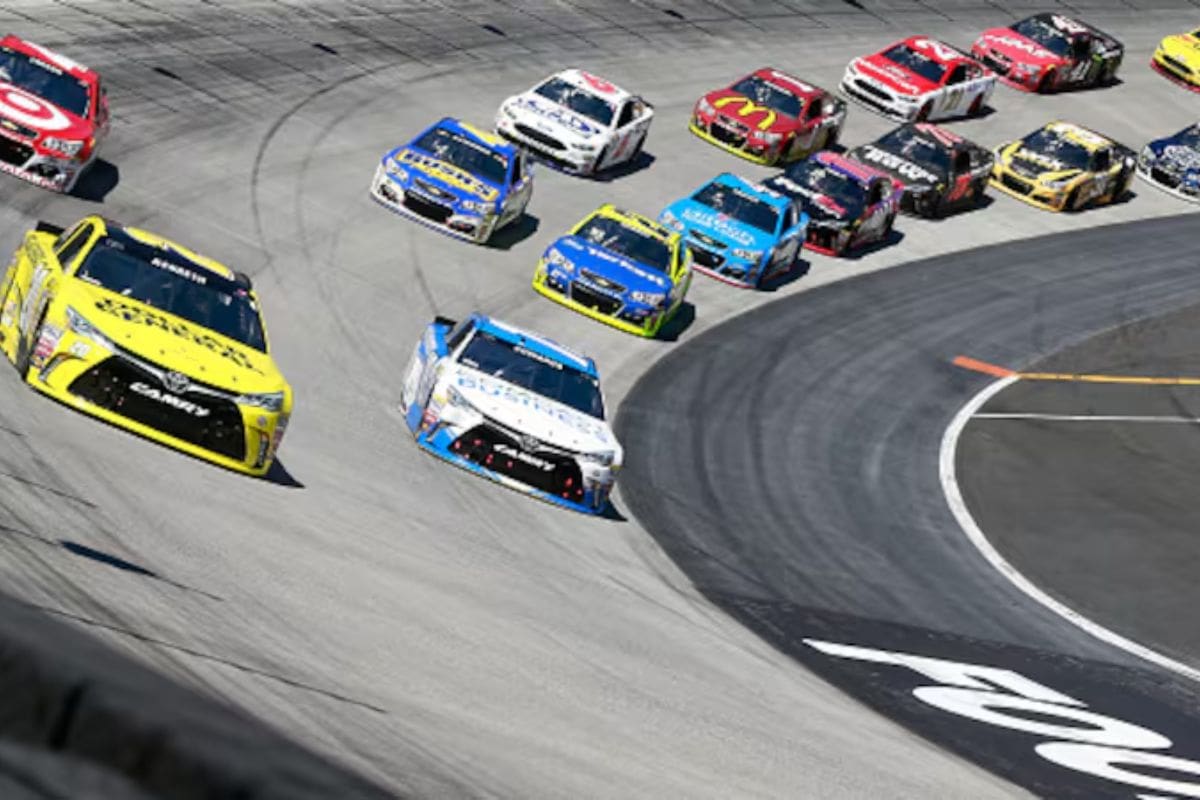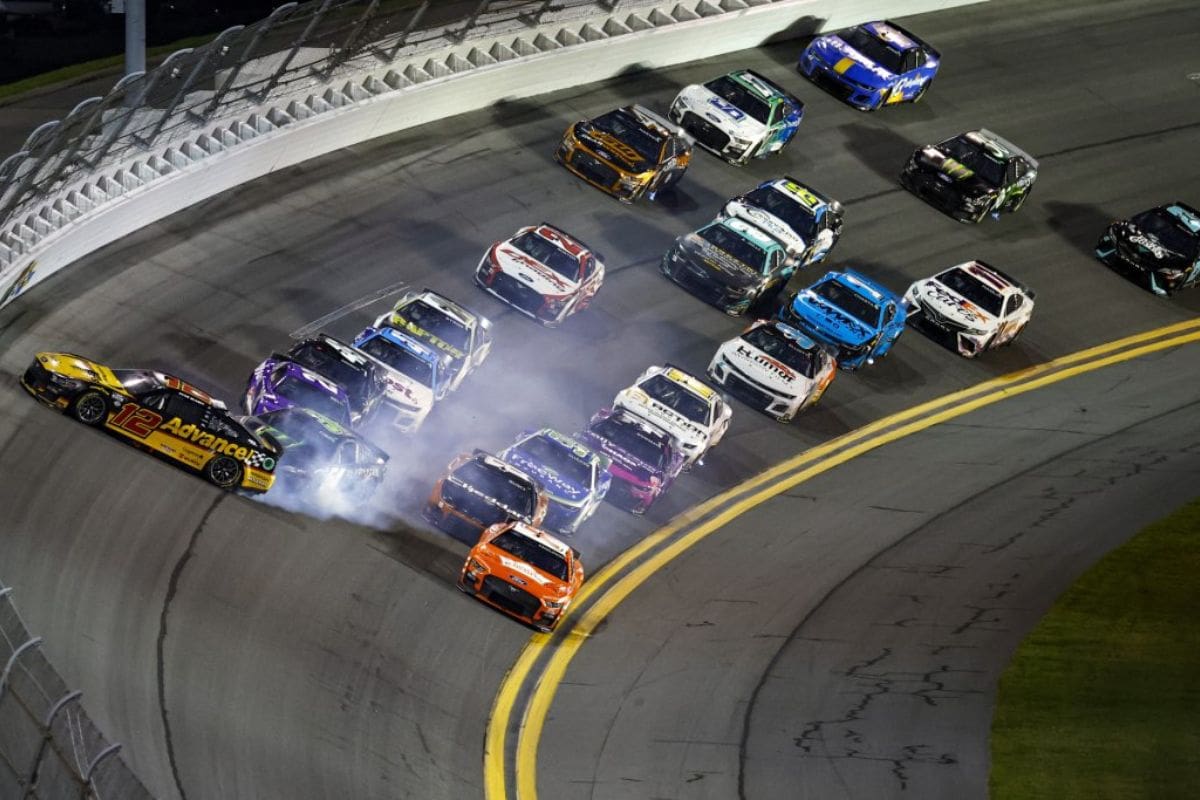NASCAR VP Uncovers Hidden Rockingham Advantage: The recent comments from NASCAR’s Vice President regarding the tactical advantage at Rockingham Speedway highlight a critical moment for teams participating in the upcoming Xfinity and Truck Series events. With the Cup Series‘ absence providing a unique opportunity for drivers to refine their skills on a historically notable track, the implications for future races could be profound. This situation not only invites a closer examination of Rockingham’s distinctive characteristics but also raises questions about how teams will utilize this advantage in a rapidly evolving competitive landscape. What tactics might they employ to capitalize on this rare opportunity?
Key Highlights
- The absence of the Cup Series allows Xfinity and Truck Series drivers to gain valuable experience on a historically significant track.
- Rockingham Speedway’s challenging layout offers unique racing conditions that can enhance driver skills and strategies.
- Increased competition among teams could lead to unexpected outcomes, benefiting those who adapt quickly to the track’s nuances.
- The track’s revival can attract diverse talent, including veterans and potential returns of retired drivers, enriching the racing experience.
- Local economic growth from increased tourism and crowds can create a supportive environment for future racing events at Rockingham.
NASCAR Announces Return to Rockingham Speedway in 2025
NASCAR’s announcement of the return of racing to Rockingham Speedway in 2025 marks a remarkable milestone for fans and competitors alike. After a decade-long wait since its closure, the speedway will once again serve as a venue for NASCAR events, specifically the Xfinity and Truck Series.
This development not only rekindles the electric atmosphere that characterized the track but also provides a tactical opportunity for teams and drivers to showcase their skills on a historically important stage.
Scheduled for April 18 and 19, the Truck Series and Xfinity Series races will occur during the only off-weekend for the Cup Series, a timing that amplifies the excitement surrounding this event. Although Rockingham will not be part of the Cup Series lineup, the allure of the track is likely to attract Cup drivers enthusiastic to compete, thereby enriching the competitive landscape.
This scenario creates a platform for cross-series engagement, offering lower-tier teams valuable exposure and experience on a revered circuit.
Moreover, the return of Rockingham Speedway is anticipated to stimulate local economic growth, as racing events typically draw notable crowds and tourism. The revival is not merely about racing; it represents a reconnection with a fan base that has long awaited the roar of engines and the thrill of competition.
As NASCAR embraces this historic venue once more, it highlights the sport’s commitment to honoring its roots while evolving to meet contemporary demands.
The Rock’s Historic Legacy in NASCAR
Celebrating its rich heritage, Rockingham Speedway, affectionately known as “The Rock,” has left a mark on the landscape of NASCAR racing. From its inception in 1965 until its last Cup Series event in 2004, The Rock hosted a total of 120 races across the Cup and Xfinity Series, solidifying its status as a crucial venue in the history of the sport.
Renowned for its challenging layout and unique characteristics, the speedway has been the backdrop for some of NASCAR’s most memorable moments. Among the notable highlights is Dale Earnhardt‘s iconic 1994 victory, where he fought off Rick Mast in a nail-biting finish to clinch his seventh Cup Series championship. This victory not only showcased Earnhardt’s tenacity but also emphasized The Rock’s reputation as a stage for high-stakes drama.
“It’s been a while since we have been back to The Rock, but we have been there a number of times. The facility looks like it is in great condition. They are going to do a really good job promoting it. We are not going to have the Cup Series racing that weekend. We might get a couple of our cup drivers, they wanna go and compete, and jump in a Truck or Xfinity car that weekend. That’ll be fun to watch.”-(ben kennedy)
Likewise, Matt Kenseth‘s win in the final race at Rockingham in 2004 serves as a poignant reminder of the track’s legacy, marking the end of an era.
View this post on Instagram
As NASCAR looks to the future, Executive Vice President Ben Kennedy has emphasized the readiness of the facility for renewed racing action. The anticipation surrounding potential participation from Cup Series drivers in Truck or Xfinity races demonstrates the enduring allure of The Rock.
Reasons for Rockingham Speedway’s Hiatus
The wait of Rockingham Speedway from the NASCAR circuit can be attributed to a confluence of factors that reflect broader trends in the sport. As NASCAR expanded in the early 2000s, the focus shifted toward newer tracks and regions, causing Rockingham, a storied venue, to fall behind. This shift was not merely a matter of geographical preference; it was a tactical realignment that sought to capture emerging markets and respond to changing fan demographics.
Rockingham Speedway, while iconic, faced challenges in maintaining its relevance amid this transformation. The track was dropped from both the Cup and Xfinity Series schedules in 2004, leading to a period of uncertainty regarding its future. Efforts for revival ensued, as evidenced by its induction into the ARCA Menards Series in 2008. However, these attempts were short-lived, with the track being removed from the schedule by 2010.
The brief re-entries into the NASCAR Craftsman Truck Series in 2012 and 2013 highlighted the ongoing interest in the venue but yielded insufficient success to secure a permanent spot in the NASCAR calendar.
In addition, the tactical decision to allocate race weekends, such as the Easter break for Cup drivers, emphasized the competitive landscape that prioritizes certain venues over others. Consequently, while many fans and drivers remain nostalgic for Rockingham, the realities of a rapidly evolving NASCAR ecosystem have kept the track in a prolonged state of hiatus.
Efforts for Revival and Recent Developments
As the landscape of NASCAR continued to shift in the wake of Rockingham Speedway‘s prolonged hiatus, substantial efforts emerged aimed at reviving the track’s former glory. In 2018, Rockingham Properties LLC made a crucial investment by acquiring the historic venue for $2.8 million, signaling a renewed commitment to restore its competitive edge. This acquisition accelerated a series of renovations designed to modernize the infrastructure while preserving the track’s historical essence.
Government support played an essential role in these revival efforts. In May 2022, the State of North Carolina allocated $9 million to Rockingham Speedway as part of a broader $45.8 million grant initiative aimed at revitalizing 17 motorsports venues affected by the COVID-19 pandemic. This financial backing not only emphasizes the state’s belief in Rockingham’s potential but also highlights the interconnectedness of local economies and motorsports.
Recent developments indicate a growing momentum as the track undergoes notable upgrades, including improvements to facilities and fan accommodations. Stakeholders are optimistic that these advancements will attract both seasoned fans and a new generation of motorsports enthusiasts.
Furthermore, the revival efforts align with NASCAR’s broader strategy to diversify its venues and expand its reach within the motorsport community.
Past Drivers with Experience at Rockingham and Future Prospects
NASCAR’s rich history at Rockingham Speedway features a roster of talented drivers who have left their mark on the track, creating a legacy that resonates with fans and competitors alike. The recent revival efforts have reignited interest in Rockingham, particularly among past competitors who have experienced its unique challenges.
Especially, Kasey Kahne and Kyle Larson clinched victories during the Truck Series‘ brief return in 2012 and 2013, respectively. Their triumphs serve as a reminder of the track’s potential for fostering talent.
Current Cup Series drivers like Ryan Blaney, Erik Jones, Tyler Reddick, Bubba Wallace, and Chase Elliott also showcased their skills at Rockingham during those Truck Series events. Their familiarity with the track could provide a tactical advantage should Rockingham return to the NASCAR schedule.
However, as the landscape of NASCAR evolves, the number of active drivers with prior experience at Rockingham has dwindled. Veterans like Jeb Burton, Matt Crafton, Ty Dillon, Grant Enfinger, and Ryan Sieg maintain a connection to the track, but the absence of consistent racing since 2004 poses questions about adaptability for newer drivers.
While Jamie McMurray, a four-time winner at Rockingham in the Xfinity Series, remains a retired figure, speculation about a possible return in the upcoming season adds intrigue to the narrative.
In essence, the interplay between past experiences and future prospects at Rockingham highlights both opportunities and uncertainties, setting the stage for a compelling resurgence in NASCAR’s storied history.
News in Brief: NASCAR VP Uncovers Hidden Rockingham Advantage
The tactical advantage presented to teams racing at Rockingham Speedway highlights the significance of the unique track characteristics in shaping driver skills and competitive dynamics. With the absence of the Cup Series during the upcoming Xfinity and Truck Series events, teams can capitalize on this opportunity to refine their strategies and gain vital experience.
This development may not only influence immediate performance but also have lasting implications for the broader NASCAR landscape as teams prepare for future competitions.
ALSO READ: NASCAR Fans Criticize 2025 Cup Series Schedule: ‘Chaos in a New Form’



